Don't wanna be here? Send us removal request.
Text
Olga Paley is received by the Empress for the first time

That very same month [January 1914], the Countess von Hohenfelsen - wanting to get close to the empress and realizing she could be a key to improving her and her children's positions - became acquainted with a powerful and enigmatic character whose name was often mentioned in Russia at that time and usually not to praise him: Gregory Efimovich Rasputin. The Siberian peasant (turned starets) already at that time had much influence over Empress Alexandra who placed on him all her hopes for the health of her hemophiliac son Tsarevich Alexis. Her best friend, Anna Alexandrovna Virubova, also believed blindly in Rasputin, seeing him as a man of God.
Olga's sister Lyubov Valerianovna and her spiritual and virginal daughter Maria (Munya for friends and relatives) were very close to Rasputin as was the Countess' son by her first marriage, Alexander von Pistolkors. Alexander's wife Alexandra (called Alya or Sana in the family) was Anna Virubova's sister. Thanks to the combined efforts of the Golovin ladies and Alexander, Olga met Rasputin for the first time and requested his help. He promised to do his best but remarked that "Mother" (the empress) was "obstinate. In her diary, Olga stated that Rasputin was "strange, but charming. The Grand Duke Paul was not amused to learn about the interview and refused to meet the starets.

It was widely known that those who believed or pretended to believe in the starets were likely to be seen as friends by the tsaritsa.
However, Rasputin's first efforts (if there were any) seemed to be unsuccessful, and Olga Valerianovna bitterly wrote in her diary that for the empress, she would always be the same adventuress. However, Olga kept getting closer to both Madame Virubova and Rasputin, whose advice she asked when one of her daughters fell ill.
In the meantime, Olga and Paul had started to build a beautiful palace in Tsarskoe Selo - the imperial village - not far from the Alexander Palace where Nicholas II and his family were living. In May 1914, they moved back indefinitely to Russia with most of their magnificent collections but kept their mansion in Boulogne-sur-Seine, intending to visit Paris often. Grand Duchess Maria, whose marriage to Prince Wilhelm of Sweden had been annulled recently, also came back to live in Russia.

Finally, Olga's desire was granted and on June 5/18, 1914, she was finally able to meet with the empress, possibly due to her friendly approach to Rasputin. However, in their efforts to make Alexandra more disposed toward them, Paul and Olga had the requested help of the Grand Dukes Dimitry Pavlovich and Kiril Vladimirovich and Minister of Justice Ivan Grigorievich Shcheglovitov. Alexandra probably felt uneasy and was agitated and breathed heavily during the interview. However, the meeting was successful, and a pleased Olga remarked in her diary: " We spoke about everything. "
For Vladimir, who wrote many verses during the first months of that year, everything seemed then bright and promising, and joyfully stated in a poem, "I live in a cloudless fairy tale."
#romanov#paul alexandrovich#imperial russia#imperial family#olga paley#vladimir paley#dmitri pavlovich
6 notes
·
View notes
Text

Princess Irina Paley, 1928
The amount of errors in this text (at least when it comes to dates) makes me cry a little inside, but the picture is great. 😅
Irina Pavlovna Paley (1903 Paris 16th - 1990 Biarritz) is the daughter of Grand Duke Paul of Russia and Princess Olga Paley.
On May 31, 1933, she married in Paris her cousin Prince Theodore Romanov (1898 St Petersburg - 1968 Ascain), nephew of Star Nicholas II. She divorced in 1936 and married, in Biarritz, Count de Monbrison in 1950. She then converted to Protestantism, her husband's religion.
Irina Paley was one of the great figures of Biarritz society. She is the author of "Souvenirs de Russie 1916/1919", J&D editions, published in 1989.
“Mama 1928” handwritten at the bottom right of the portrait.
#romanov#irina paley#imperial russia#imperial family#royalty#1920s fashion#1920s style#paul alexandrovich#olga paley
7 notes
·
View notes
Text
The Strained Relationship between Olga Paley and Grand Duke Dmitri Pavlovich
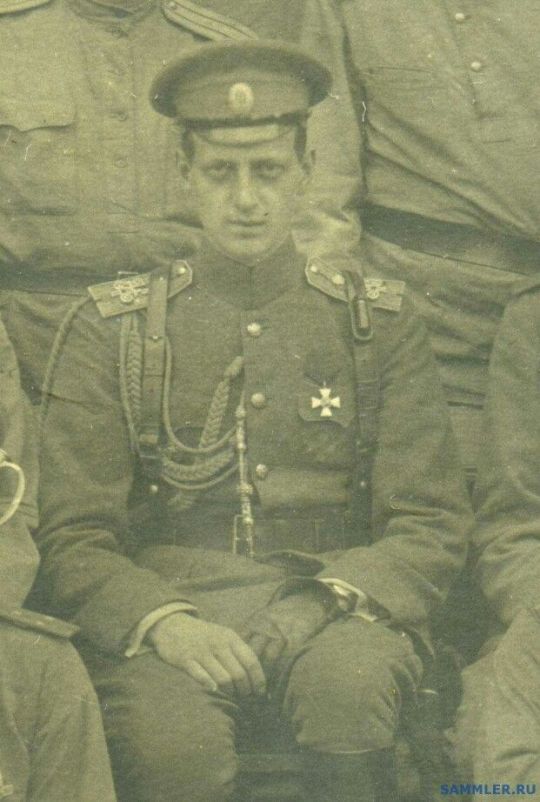

While it seems that Princess Paley's relationship with her stepdaughter Grand Duchess Marie Pavlovna was very cordial and even friendly, the same could not be said of her stepson, Grand Duke Dmitri Pavlovich. Here are a few excerpts from "The Flight of the Romanovs" by John Curtis Perry.
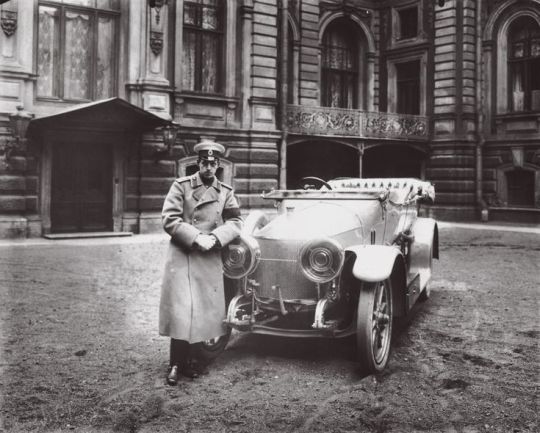
Dmitri had grown up to be a handsome, indeed dashing, young man but a Romanov Hamlet, tormented by many things simultaneously: his childhood as a virtual orphan, with his mother dead and his father banned from Russia; the terrible death of his guardian Grand Duke Sergei; his sister, closer to him than any other person, taken to Sweden in the duty of a royal marriage; and his ironic intimacy with the emperor and empress who had made him almost a member of their family but actually had deprived him in childhood of a father and in adolescence a sister. Dmitri remained always an outsider. (...)
The emperor had pardoned Dmitri’s father, Paul, his last surviving uncle, and permitted him to return to Russia when the war had broken out. Paul’s second wife, Olga, had shrewdly asked Rasputin to intercede on her husband’s behalf. She had been eager to drop her German title for a Russian one, and Paul secured permission from the emperor for his wife to be promoted from Countess Hohenfelsen to Princess Paley, taking the name of a Cossack chief to whom she was related.
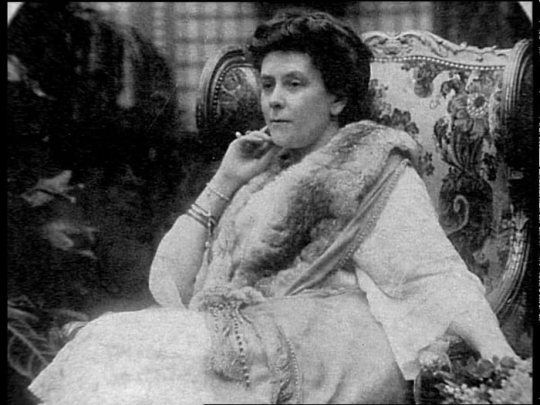
There was no love lost between Dmitri and his stepmother. Olga, Princess Paley, had her own son by Paul, Vladimir, upon whom she doted. The fact that her own morganatic marriage meant that Vladimir could never be a grand duke like Dmitri irritated her tremendously. Dmitri, on his part, wrote to the emperor saying that he saw the “honorable family of Countess Hohenfelsen” as little as possible, thus making life in St. Petersburg, he said, much more peaceful.
Dmitri could only pity his father, so dominated by his aggressive second wife. In October 1916, Princess Paley was outraged to find that Grand Duke Paul had been choosing wines from their cellar and taking them to army headquarters, where he was then stationed. “I would somehow understand if you treated the Sovereign to it,” the princess complained, “but to waste it on Dmitri or Grand Duke George Mikhailovich was totally unnecessary.”
Princess Paley believed that Dmitri was scheming not only against her son but also against his own father. She wrote to her husband, “I have been telling you in every letter; ‘don’t trust Dmitri,’ and I myself was deceived by his damned tricks! I have rarely hated people, as I hate him right now!”
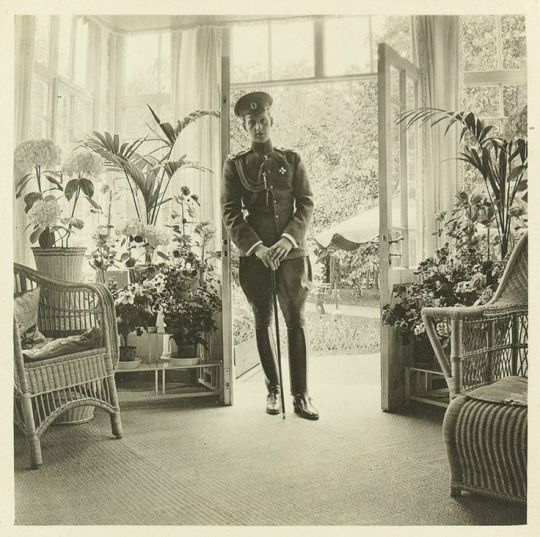
Of course, nothing of this comes across Princess Paley's Memoires, in which she gives the following description of Dmitri:
"During our stay at Mohileff the Grand Duke Dimitri, who was on duty with the Emperor, often came to lunch and. dine with us. Very well informed about war matters and what was in progress at the headquarters of the General Staff, endowed with remarkable intelligence and with the faculty of grasping facts and drawing from them the necessary conclusion, this young man of twenty-five was a mature man and a shrewd observer. He also recognised the imminent danger which the country was running, and he had conversations on the subject more than once with the Emperor . and with his own father. I remember that one day at Mohileff, at tea time, he said to me:
"Ah, mamotchka (a tender diminutive of mama), if only you knew what is going to happen!"
It was in vain that I pressed him to continue. he would say no more."
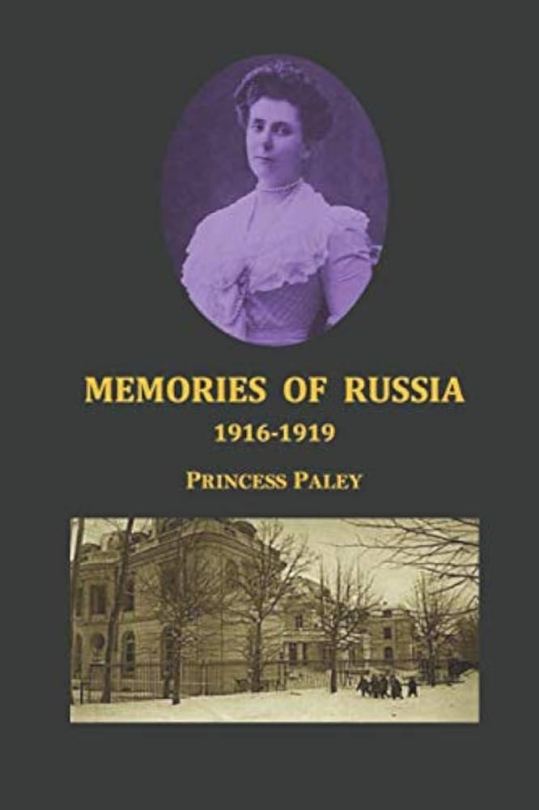
#romanov#paul alexandrovich#imperial russia#imperial family#royalty#olga paley#grand duke#dmitri pavlovich
28 notes
·
View notes
Text
The Paleys at The Start of World War One

Now aged fifty-four, Grand Duke Paul and his wife were still busy organizing their new home [when World War One started]. Within a few months it was almost fully furnished with their collections from Paris, glass cases containing valuable antique porcelain and silver, Chinese stone knick-knacks, and exquisite examples of cut glass, and walls hung with priceless pictures and portraits. His wife was still known as Countess of Hohenfelsen, the name conferred on her by the Prince Regent of Bavaria. It was impolitic for her to retain a German name, and as she could not be made a Grand Duchess, in 1915 the Tsar conferred on her and her children the style and name of Prince and Princesses Paley. The move came just in time, as their son Vladimir left for the front a few days later.
Before he went to war, initially in command of a corps of the imperial guard and then at army headquarters, Paul spent most of his leisure time reading, walking, playing with his younger daughters and taking them to the circus. Princess Paley excused herself from this treat as she was allergic to the smell of horses. Their daughter Irina disliked circuses herself, but she never had the heart to tell her father as he obviously enjoyed himself so much.
Soon after the outbreak of war they transformed their ballroom into a workshop where Princess Paley, the ladies of Tsarskoe-Selo and their children made comforts for wounded soldiers. No orchestra played there, but one evening they pushed back tables and sewing machines, and Paul invited Irina to waltz with him to The Merry Widow played on an old gramophone.

The divorced Grand Duchess Marie Paulovna felt her father had hardly aged at all. At fifty-five he still had a youthful figure, as well as the gift of reducing her to helpless laughter at stories and anecdotes 'which he told incomparably. His dressing room was still permeated by the scent of the perfume he had always used, and his clothes were laid out on the spare bed in the old way'. Just as before, father and daughter went for a walk at eleven in the morning, and he took a nap between lunch and teatime. After dinner every evening they gathered in his study while he read aloud. For Marie it was a haven to return to this homely atmosphere, away from the stress of her hospital work.
The rest of the imperial family were becoming steadily less popular. As Rasputin's influence mounted, so did criticism of the Tsar and Tsarina. The latter and Grand Duchess Serge, those 'German women', or even 'Hessian witches', were easy targets for nationalist venom. As the Tsarina was blamed for much of what went wrong, and found herself treated with hostility by other members of the imperial family, Paul sprang gallantly to her defence. He remained ever supportive of her, consulted her regularly on day-to-day matters and kept her informed of his conversations with the French ambassador. According to his daughter he, if not the rest of the family, 'seemed to be sustained by courage, wisdom, and the power of abstract reasoning'. The Crowd's moods left him untouched. He followed attentively, though not without agitation, the unfoldment of fanatical developments and the changed psychology at court.

Yet, almost unnoticed by the family, his health was declining, his determination to take a relatively active role in military affairs not matched by his physical strength. For some years before his return to Russia there had been concern about the state of his liver, and a tendency to suffer from stomach ulcers. During the winter of 1915-6 he was seriously ill with pleurisy, and his eldest daughter was horrified to see him so weak. He was losing weight, had a suspected gall bladder infection, and at one stage there was talk of operating on him in order to save his life. While the possibility of losing him suddenly seemed unbearable, she would later admit that she often had cause to regret that he did not die then.
The Romanovs 1818-1959 - John Van Der Kiste

#romanov#paul alexandrovich#imperial russia#imperial family#royalty#olga paley#grand duke#vladimir paley#irina paley#world war one#russian history
8 notes
·
View notes
Note
Hi, I would like to ask such an interesting question...What kind of houses would Pavel Alexandrovich's children (Vladimir, Irina and Natalia) go to at Hogwarts?
Haha, this was a fun question! 😄 Well, if I had to guess, I'd say Vladimir and Irina would probably be Ravenclaws because they seemed to be more creative and intellectual. And I think Natalia would be a solid Griffindor because she went through such traumatic experiences in Russia, but she still managed to fight for what she wanted despite the expectations that were set upon her (I mean, she could have married Prince Dmitri Alexandrovich if she wanted, and she went with Lucien Lelong, who was a much more controversial choice, had a career in Hollywood and was a fashion icon, so I fill in the requirements. 😄)
#romanov#imperial family#royalty#natalie paley#irina paley#vladimir paley#harry potter#ravenclaw#griffindor
3 notes
·
View notes
Text

Born 120 years ago in Paris in 1905, fashion icon and art influencer #nataliepaley worked with and inspired many artists, designers, jewelers, photographers, and writers such as #jeancocteau #paveltchelitchev #salvatordali #fulcoverdura #mainbocher #sergelifar #hoynigenhuene #horstphorst #cecilbeaton #erichmariaremarque #antoinedesaintexupery and many others. The last picture here features an amazing necklace designed by #millicentrogers for #princessnataliepaley today preserved @metmuseum - The life of Princess Natalie Paley once described by the fashion industry as one of the most best dressed women in the world will be featured in a special exhibition at Hillwood in June 2025. A new publication will be released at the same time.
#hillwood #hillwoodmuseum #fashionstyle #fashion #fashionicon #bestdressed #2025 #jewelrydesigner #jewelry
Source: https://www.instagram.com/p/DETCYiGP3Ca/?igsh=MTJjMzZzbTh0cHByeQ==
#romanov#natalie paley#paul alexandrovich#imperial family#imperial russia#exhibition#exiled royalty#royalty in exile#grand duke
8 notes
·
View notes
Text
Grand Duchess Marie Pavlovna recalls her visits to her father in Paris

The next day we had lunch with my father. I saw at last the home to which for years my thoughts had flown, and met for the first time my half-brother and my two little half-sisters, the eldest of whom was six years old. The house at Boulogne was comfortable, peaceful, and simple. It was a home. My father could have no possible regret for the great palace, cold and bare, that he had left at St. Petersburg. He and his wife were ideally happy.
Seeing them thus side by side in the home they had made together, there passed from my heart the last trace of all ill feeling that I had harboured towards my stepmother. Thereafter we called each other by name as friends do, and employed the familiar “tu and “toi” in addressing each other. This made my father very happy. (...)

Before settling in the country again, at the end of that winter, I went to visit my father at Boulogne. I loved these visits; the simplicity and peace of my father’s household did me good after all the publicity with which I was so constantly surrounded in Stockholm. We went about, and sometimes attended the theatres, but more often stayed home in the evenings, my father reading aloud while my stepmother and I embroidered.
Between my father and myself the ties of affection had strengthened with the years. When, therefore, during this visit, he felt it necessary to question me severely as to my escapades in Sweden, of which exaggerated accounts had somehow reached him, I was cut to the quick. From him I learned for the first time, with amazement, the cruel interpretation that was being put upon my childish foolishness; from him, heard the “reputation” I was getting. It was my first direct experience with the malevolence of humanity, and I was profoundly depressed.
Long after my father had forgotten this conversation, I thought of it often, and always with a tightening of the heart. (...)

Late in the autumn I took my son with me to Paris to see my father, whose position now had changed in several respects. The Emperor had not only called him back to Russia to be Present when Dmitri took the oath of allegiance and joined a regiment, but had upon the same occasion lifted my father’s banishment. I found him and his wife delightedly making plans to build a house on an estate at Tsarskoie-Selo, the imperial residence, Their son, my half-brother, had already been sent to St. Petersburg, and entered in the Ecole des Pages, a military school.
I decided to open my heart to my father and tell him all my difficulties. He listened patiently but was firmly opposed to the idea of a divorce. In his opinion, apart from all moral and political aspects of the case, I was much too young to be alone in the world; and my stepmother strongly supported him in this opinion.

Education of a Princess - Grand Duchess Marie Pavlovna Jr
#romanov#paul alexandrovich#imperial russia#imperial family#royalty#william of sweeden#swedish royal family#olga paley#marie pavlovna jr.#lennart of sweden#grand duke
11 notes
·
View notes
Text
«In the blue kingdom, in the pink kingdom» is the cycle of poems, which prince Vladimir Paley devoted to his sisters princesses Irina and Natalia Paley. Photos of original edition of his book from 1916

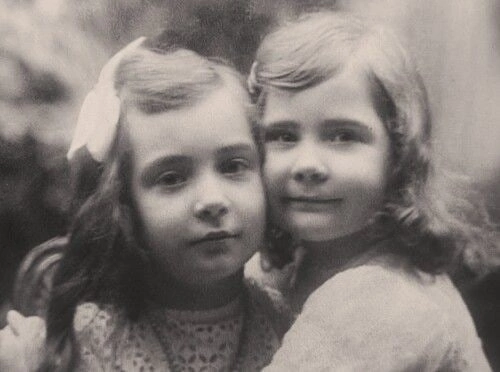





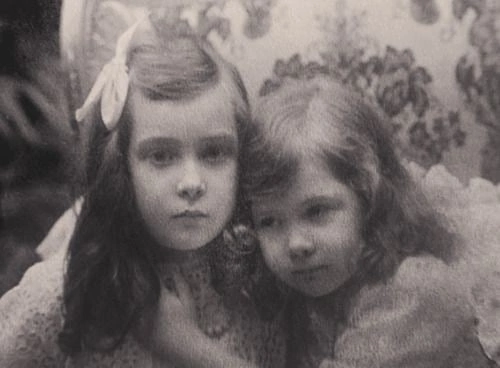
8 notes
·
View notes
Text
The Paleys Return to Russia

In January 1912, Grand Duke Paul returned to favor with Emperor Nicholas II. After more than a decade of exile, the latter, on the eve of the celebrations of the tercentenary of the Romanov dynasty, finally decided to forgive the disobedience of his uncle, the only surviving brother of his father, Alexander III. To legitimize this decision, he named him, by imperial ukase, honorary leader of the seventy-ninth Kourinsky infantry regiment.
Quite naturally, from then on, the Grand Duke wished to leave France in order to return definitively to Russia with his family. During the same year, he went to Tsarskoye-Sélo – where the Tsar and his family resided –, in order to have a palace built there. Inspired by his home in Boulogne-sur-Seine, it was built and decorated by workers who came especially from France and was not yet completed when the family moved in May 1914.

The furniture arrived by train from their Parisian home, the paintings, the display cases, all the objects bought during trips to Italy, Germany...
For Natalie, then almost nine years old and who, until that moment had only left Boulogne to travel to Bavaria, to Biarritz - they spent several weeks each year in their Villa Coquette - or to spa towns like Vichy, such a journey was a real adventure. Of all her familiar entourage, only Miss Theureau and Miss White accompanied Natalie to her new life. Nothing could have prepared her to face this country, both archaic and wonderfully civilized.

"One morning, we were horrified to see, along the Volga, a group of peasant women, strapped like prisoners, trying to haul a barge with great difficulty; the next day, when we returned from a sleigh ride in a countryside dazzling with whiteness, a servant rushed to dust the snow from our clothes with a brush reserved for this only use. That was his only function," recalled Irina Paley.
We can easily imagine her amazement upon discovering Saint Petersburg, where Natalie stayed for a while in her father's palace at the English Embankment, while the family waited to move to Tsarskoye-Sélo. (...) When she arrived in Tsarskoye Selo - the railway linking the Tsar's village to Saint Petersburg, completed in 1837, was the first to be built in Russia - the memory of Pushkin was still ever present (...)

The residence of Grand Duke Paul was surrounded by a French garden and a black wrought iron gate where the letter P. in Cyrillic was inlaid in a series of gilded bronze medallions surmounted by an imperial crown. Lanterns decorated with acanthus leaves were lit - the town had been the first in all of Europe to receive electricity - from dusk and provided an iridescent light on the snow in winter.
A series of salons - the Countess of Hohenfelsen organized the lives of her family from the pink salon for which she had brought all his favorite objects - a ballroom which was never used, a ceremonial dining room - pieces of silverware sparkled in the windows and crystals from the seventeenth and eighteenth centuries shone and of course a spacious library... such was the new setting in which Natalie now moved.

The return to Russia was an opportunity for her to discover a large, almost unknown family: her maternal grandmother, Olga Vassilievna Meszaros, whom everyone called Babaka, her half-sisters Marianne and Olga, as well as their brother Alexandre, without forgetting her cousins the Grand Duchesses Olga, Tatiana, Marie and Anastasia, daughters of Emperor Nicholas II. (...)
They met at church or on walks, either in the gardens of the Alexander Palace, which formerly sheltered elk and wild boars intended for hunting parties organized to entertain the court, or in the park of the Grand Palace, where a delightful Chinese Theater red and gold, a whim of Catherine II, rose among the pines.
During the first weeks, life resumed its normal course. Every Sunday, Natalie and her parents attended mass as always, most often at the Féodorovski Sobor, where the sovereigns also went. The little girl met her godfather there, Grand Duke Nicholas Mikhailovich, and many of their acquaintances.

"Natalie Paley: princesse en exil" - Jean Noel Liaut
#romanov#paul alexandrovich#imperial russia#imperial family#olga paley#grand duke#morganatic marriages#grand duke nicholas mikhailovich#nicholas ii#otma#tsarskoe selo#irina paley#vladimir paley#natalie paley
19 notes
·
View notes
Text
Olga Paley's life of luxury in Paris

Olga’s diaries, which survive in the state archives in Moscow, are an endless catalog of self-indulgence, of her expenditure on dress fittings and hairdos several times a week, on perfume from Roger & Gallet and Houbigant, on beauty products from Guerlain. She had already become acquainted with the best shops on the rue de la Paix before she met Paul—from accompanying her first husband, Erich von Pistohlkors, on trips abroad. She was a regular patron of Paquin, whose gowns cost 5,000–6,000 francs each, and had become a devoted customer of Charles Worth—a few doors down from Cartier.
Olga dreaded getting fat and not being able to squeeze into her gorgeous, expensive gowns, so avoided eating at table, instead having snacks in private between meals. It was worth it for the moment of triumph she enjoyed at Madame Yturbe’s Hungarian costume ball in 1912, where she arrived dripping in luxury: a dress by Worth encrusted with rows of pearls and a Cartier tiara of pear-shaped diamonds on the bodice, an imposing hussar-style fur hat bearing a Cartier diamond and pearl corsage, and a matching fur cape. Olga’s coiffure for the occasion cost 9,950 francs (around $700) at the hairdresser Savary. A photograph of her in full rig by fashionable photographer Boissonas & Taponier and widely circulated in the press marked the high point of Belle Époque fashion.

On a typical day in May 1904, Olga had noted in her diary a trip to jeweler André Falize to inspect Princess Mathilde’s jewels* and “then to Cartier to look at different objects and buy some.” After lunch she ordered a hat at Meyer’s establishment, and then went to the Austrian patissier Anton Rumpelmayer on rue de Rivoli for tea and gateau, then once more back to Cartier. Such shopping expeditions, she wrote in her diary, were all “terribly exhausting,” as were the never-ending stack of invitations that demanded her and Paul’s attendance at charity fetes, baptisms, marriages, garden parties, balls, and trips to the opera and theater. When it all got too much, they would head off with their children to Biarritz, the South of France, or Italy, or go to Germany to “take the cure.”
"After the Romanovs" - Helen Rappaport
#romanov#paul alexandrovich#olga paley#imperial russia#imperial family#royalty#grand duke#belle époque#paris france#cartier#worth#paquin#fashion history#early 20th century
12 notes
·
View notes
Text
Marianne - The Most Scandalous of the von Pistohlkors Siblings
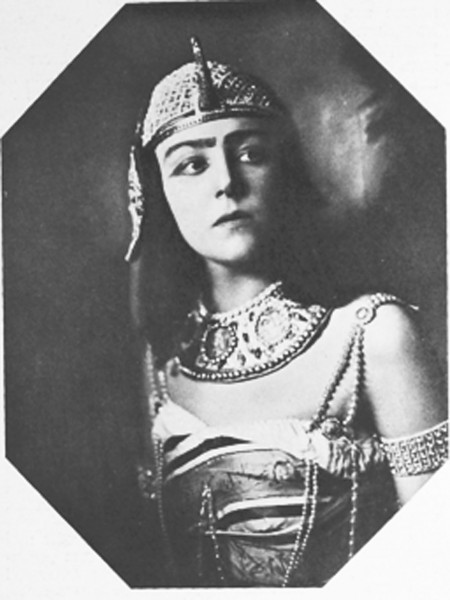
Marianne von Pistohlkors was born in 1890 and was known by many names throughout her life. Her family called her "Babaka", her friends called her "Malanya".
In 1908, at the age of 17, she married Lt. Col. Peter Petrovich Durnovo, the son of the Minister of Internal Affairs, Pyotr Durnovo, and a classmate of her older brother Alexander. They had one son, Kyrill, born in November 1908. During that time, she was known as Mrs. Durnovo.

There are different versions as to why the couple got divorced just three years after their marriage. Some say Durnovo had a drinking problem and was abusive, others say Marianne was having an affair with none other than Rasputin:
"She was married first to the guards hussar Durnovo. She was acquainted with Rasputin. Once Durnovo, having suddenly appeared at a small gathering of the Elder's admirers, caught the moment when the Elder was embracing his wife. With a strong blow the hussar knocked the Elder down, took his wife away, and Rasputin, lying down, shouted: "I will remember you" - A.I. Spiridonovich
Either way, the couple was divorced in 1911, but it didn't take long for 22-year-old Marianne to find a new husband: a year after her divorce, she married Christopher Ivanovich von Derfelden, another officer and collegue of her brother Alexander. From then on and during most of WWI, she was known as Marianne von Derfelden. And it would be under that name that she would be implicated in one of the most famous murders of history.
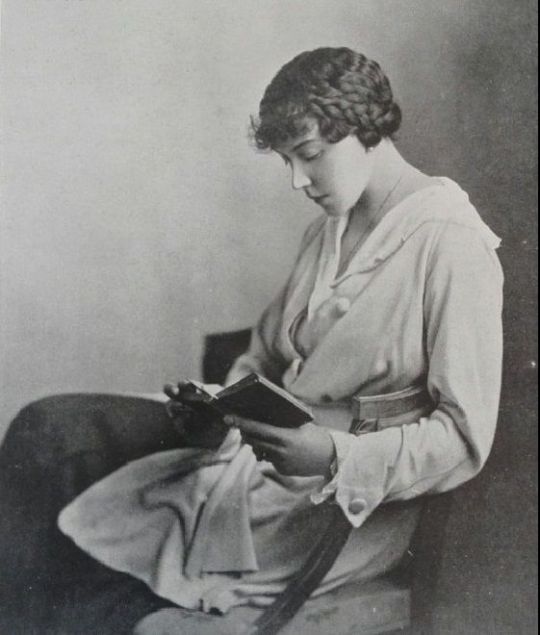
Marianne was considered a very attractive woman. She was also witty, inteligent and social, which made her very popular in Saint Petersburg high society in the final years leading up to World War One. One of her most famous stunts was to attend a costume ball given by Kleinmichel dressed as an Egyptian in which she performed a provocative dance with a naval officer (who was not her husband).
Two photographs of the evening were published in a famous social magazine and were a tremendous success.
At the time, Marianne was also an amateur actress and model.
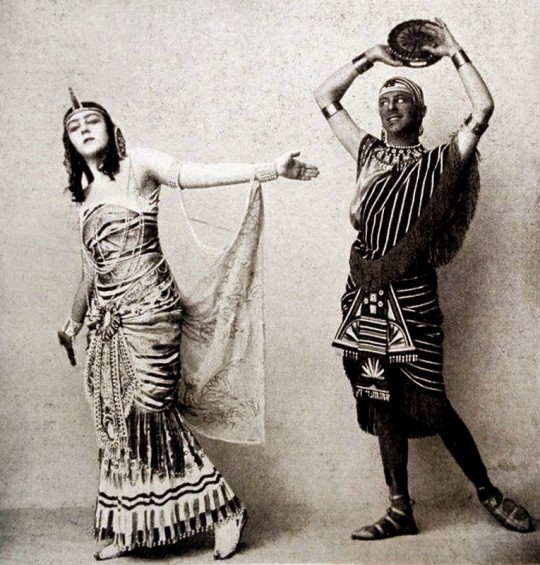
After World War One started, Marianne became a nurse and drove ambulances around the city. On January 5, 1916, she received the St. George Medal for her efforts.
Since her mother and stepfather had returned to Russia in 1914, Marianne had also developed a close friendship (some even refer to it as flirtation) with her step-brother, Grand Duke Dmitri Pavlovich. They attended the same parties and had the same circle of friends. They also were among the Saint Petersburg aristocratic groups that hated Rasputin and thought he was a bad influence on the Empress.
This was a time when the rumours in Petrograd society were particularly wild and farfetched, so the nature of Dmitri and Marianne's relationship varies between "friendly", "flirtatious" to "they were lovers and took pictures of themselves reenacting Kamasutra positions" and "they participated in orgies thrown by Prince Felix Yussupov in his palace".
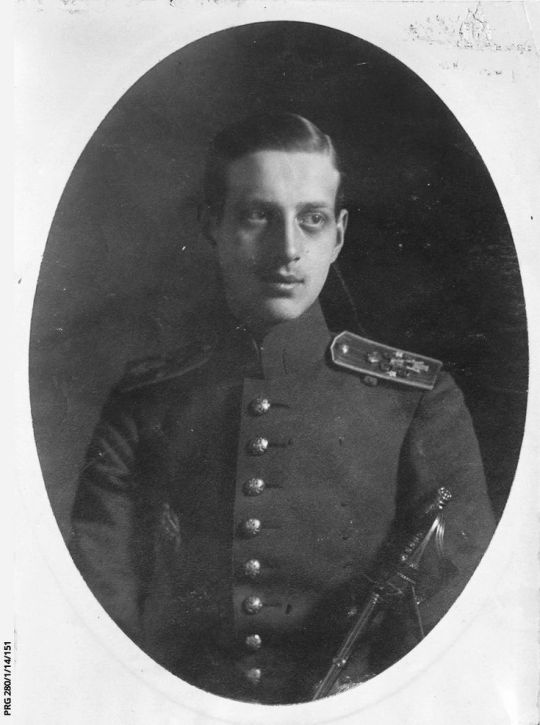
Whatever the nature of their relationship, the truth was that Marianne was deeply involved in the conspiracy to murder Rasputin. It had never been fully proved that she was the Yussupov Palace, but she knew about the plans and there were rumours that some of the meetings to organize the murder took place at her apartment.
When it was discovered that Dmitri was one of the co-conspirators and was sent to the Persian front as punishment, Marianne was one of the few people who went to the train station to say goodbye, which ultimatly alerted the authorities to her participation and Empress Alexandra ordered her house arrest. Her telephone was taken and her house was searched [apparently, when the guards asked for a key to open a closed drawer, she told them 'you'll only find love letters'], but nothing was discovered and she was set free on three days later.
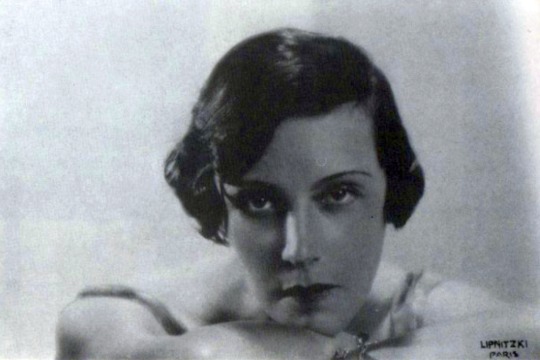
A few days after Dmitri's departure, the French Ambassador, Maurice Paléologue, met Marianne at a restaurant and this was what he wrote about the meeting in his memoirs:
Dining at the Restaurant Contant this evening, I saw pretty Madame D----- at the next table with three officers of the Chevaliers-Gardes; she was in mourning. During the night of January 6-7, she was arrested on suspicion of having taken part in the murder of Rasputin, or at any rate known of the preparations. Thanks to the high influences which protect her, she was simply kept under observation in her flat and released three days later. When a police officer asked her for the key of her bureau in order to secure her papers, she replied sweetly and simply: "You'll only find love-letters." The remark is Madame D----- personified. Twenty-six years of age, divorced, remarried at once, then separated from her second husband, she leads a wild life. Every evening, or rather every night, she holds high revel until morning: theatre, ballet, supper, gypsy singers, tango, champagne, etc. And yet it would be a great mistake to judge her solely by this tawdry dissipation; at bottom she is warm-hearted, proud and an enthusiast. Rasputin's murder, of the preparations for which she knew, came as a thunderbolt to her. The Grand Duke Dimitri seemed to her a hero, the saviour of Russia. She went into mourning on learning the news of his arrest. When she heard that he had been sent to the Russian army front in Persia, she swore to continue his patriotic work and avenge him. Since the police evacuated her residence four days ago, she has been concerned in all the ramifications of the plot against the Emperor, carrying letters to some and passwords to others. Yesterday she called on two colonels of the guard to win them over to the good cause. She knows that the agents of the terrible Okhrana are watching her, and is fertile in resources to throw them off the scent. Any night she expects to be incarcerated in the fortress or sent to Siberia; but she has never been so happy before. The heroines of the Fronde, Madame de Longueville, Madame de Montbazon and Madame de Lesdiguières must have known this unreal exaltation, by virtue of which the conscientiousness of a great peril rekindles a great love. When she finished dinner she passed close to my table, followed by her three officers. She came up to me. I rose to shake hands. In rapid tones she said: "I know that our mutual friend came to see you yesterday and told you everything . . . He's extremely anxious about me. It's only natural . . . he loves me so much! Anyhow, he thought you would be ready to help me in case of disaster and was anxious to make certain. But I knew what you'd say. What could you do for me if things went badly? Nothing; that's obvious . . . . But I'm grateful for the nice things you've said about me, and I'm sure that at the bottom of your heart---though not as ambassador---I have your approval . . . We may never meet again. Good-bye!" And with these words she sped away swiftly and silently, escorted by her chevaliers-gardes.
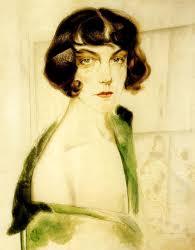
As mentioned in the quote above, by 1916, Marianne was already separated from her second husband and would soon marry again, this time in October 1917 to Count Nikolai Konstantinovich von Zarnekau, a son of Prince Konstantin of Oldenburg.
Perhaps because of the preassures of the revolution [Marianne later revealed that her life with Nikolai was marked by poverty], this marriage was even shorter than the others and, by 1918, she was already in a relationship with Andrei Nikolaevich Lavrentiev, a Russian actor and theater director.
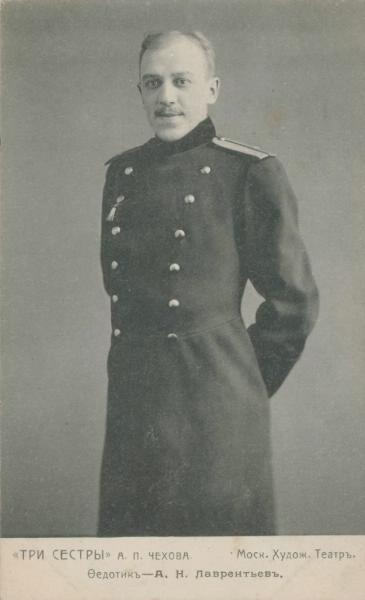
According to her mother’s recollections, Marianne warned her family several times about the impending arrest, having received information from a commissar who was infatuated with her. “She was quick, … tactfully and easily met Kuzmin. He fell madly in love with her. And he freed us for her sake,” wrote Olga Paley. On August 9, 1918, the Danish envoy H. Scavenius proposed a plan through Marianne to save the Grand Duke: Pavel Alexandrovich, dressed in an Austro-Hungarian uniform, was to hide in the Austro-Hungarian embassy, but the latter refused to change into the uniform of a state hostile to the Russian Empire. Despite all her efforts, she still failed to save her family.
After the death of her son and husband, Olga Valerianovna and her younger daughters illegally emigrated to Finland with the assistance of P. P. Durnovo, Marianna's first husband. Her father and brother Alexander left the country with their families.
Marianne, however, remained in Russia until 1921. She became an actress at the Bolshoi Theater under the stage name Maria Pavlovna in honour of her late stepfather. In 1921, she moved with her lover to Riga, where they remained for several years. In 1936, under the stage name Marianne Fiori, Marianne moved to New York and would remain in the United States until her death. In 1961, she was married for the fourth time to Mikhail Aleksandrovich Paltov, the son of chamberlain Aleksandr Aleksandrovich Paltov , formerly a captain of the Life Guards Horse Grenadier Regiment.
#romanov#paul alexandrovich#imperial russia#russian aristocracy#marianne von pistohlkors#grigori rasputin#grand duke dmitri pavlovich#prince felix yussupov#irina paley#natalie paley
47 notes
·
View notes
Text
The Von Pistohlkors, Half-Siblings to the Paleys - Alexander and Olga

When Olga von Pistohlkorsstarted her affair with Grand Duke Paul Alexandrovich, she had been married since 1884 to Eric-Gerhard Augustovich von Pistohlkors, a Russian officer of German and Latvian origins. Throughout their marriage, the couple had four children:
Alexander Erikovich von Pistohlkors, born in 1885, a daughter named Olga who died when she was just a few months olga, Olga Erikovna von Pistohlkors, born in 1888 and Marianne Erikovna von Pistohlkors, born in 1890. They all played an important role in the lives of their half-siblings and, in some cases, even in the social circles of Tsarskoe Selo and Russian History, so here is an overview of their lives, starting with Alexander and Olga.
Alexander von Pistohlkors

Born on 6 June 1885 in Saint Petersburg, Alexander attended the prestigious Corps des Pages Academy (his father was an high-ranking official and ADC to Grand Duke Vladimir Alexandrovich, which granted him access to this very exclusive school). In "Miss Daisy's Secret Russian Diary: 1916-1918 By Muriel delaHaye", written by the sister of the nanny to Alexander's daughters, she describes him:
As for the children's father, well, he has the most illustrious reputation as an army officer and is often talked about in our house. He is very well known for his bravery but is also well known as very fierce and cruel. They say he shot eighty-five Latvian rebels with his own hands! When the war began he enlisted in the famous 'Wild Division' under General Kornilov and has been to the furthest point reached by the Russian troops, so now he has done two years of battles in the most terrible conditions. Ida says he is always quite jovial when she sees him. I suppose he is glad to be back home to see his 3 little daughters. His background is quite a topic of conversation in our house with Nina Michaelovna and is well known by most people in Petrograd. He is the son of Captain Eric von Pistolkors, an army captain and aide de camp to the Grand Duke Vladimir, the Tsar's uncle. His mother, Olga Valerianova, caused a huge scandal many years ago, when she began a love affair with another uncle of the Tsar, Grand Duke Paul. Captain Eric von Pistolkors was left with a choice of resigning his commission and leaving the army or divorcing his wife who was already pregnant with the Grand Duke's child. He chose the latter.

Alexander and his sister Marianne von Pistolkors were brought up in Tsarskoe Selo, he at the Military Academy, whilst Olga and Grand Duke Paul were banished from Russia by the Tsar. They had what is called a morganatic marriage without permission from the Tsar and Grand Duke Paul lost his position, his income and his right to live in Russia, until shortly before the war began in 1914 when they were allowed to return. They spent their years of exile in Paris. Olga was created Princess Paley and their son, Vladimir, who could not take the Romanov name is now known as Prince Paley. They built a huge house, that is a palace, in Tsarskoe Selo, which they filled with antiques and paintings collected in Paris where they had lived with their two younger daughters Natalie and Irene. The ballroom of this palace is now turned into a workroom where Olga presides over ladies making gifts and presents for the troops. Ida takes the three girls there to see their grandmother. The Grand Duke Paul was a widower at the time of their marriage, with two children, Marie and Dmitri, from his first marriage to Princess Alexandra of Greece who died in childbirth. Because the name von Pistolkors sounded too German, they dropped the 'von' in much the same way that Petersburg became Petrograd when the war started. Somehow, you see, they are all related, either by blood or marriage, to the Tsar and to what ever goes on in Tsarskoe Selo.

He was married to Alexandra Taneyeva, the sister of Anna Vyrobova (the close confident and lady-in-waiting to Empress Alexandra). They had three daughters: Tatiana, born in 1910 (Grand Duchess Tatiana Nikolaevna was her godmother), Olga, born in 1912 (Grand Duchess Olga Nikolaevna was her godmother) and Alexandra, born in 1914.
Much like Anna Vyrobova, Alexander and Alexandra (or Sana) were admirers of Rasputin and even appear in one of the most widely known photographs of one of his gatherings. Sana in particular was in constant contact with him and he apparently helped her get through a period of melancholy somewhere around 1914-15. (Fun fact: Marianne, Alexander's youngest sister, was wholly opposed to Rasputin and was even present when he was murdered in 1916, so family reunions must have been fun).

This relationship is detailed in the book "Rasputin- Faith, Power, and the Twilight of the Romanovs" by Douglas Smith:
Anna introduced her sister, Alexandra (known as Sana), to Rasputin and she too, along with her husband, Alexander Pistolkors (as of 1908). joined the growing ranks of his followers. The Russian archives preserve her pleading telegrams to Rasputin-
24 July 1910. From Petersburg to Rasputin in Pokrovskoe. Am ill. I beg for your help. I want to live. Sana.
1 November 1910. From Petersburg to Rasputin in Pokrovskoe. I'm in pain. Bedridden. Am terribly afraid. Please pray for me. Sana.
Alexander Pistolkors' aunt Lyubov Golovina (née Karpovich) and her daughter Maria (known as Munya) were also introduced around this time to Rasputin and became devoted disciples as well. Alexander's mother, however, Princess Olga Paley, and her second husband, Grand Duke Paul Alexandrovich, Alexander's stepfather, could not abide Rasputin, nor could Paul's son, Grand Duke Dmitry Pavlovich, one of Rasputin's murderers. To complicate matters still, Alexander's sister, Marianna Pistolkors (m. Derfelden), was extremely close with her stepbrother Dmitry and shared his views about Rasputin. Some later claimed she was even present at his murder. Rasputin divided families as well as the entire country.

Alexander, his wife and children fled Saint Petersburg and settled in Finland in 1916. They later divorced and Alexander married another woman.
Olga von Pistohlkors (Kreutz)

Olga von Pistohlkors seems to have been the most discreet of her siblings. She was born in 1888 and married Count Alexander Belzig von Kreutz in 1906, being known henceforth as Countess Olga Kreutz.
There isn't much information about her other than the fact that she had two children (Alexander - who was Olga Paley's first grandchild - and Olga), she was a follower of Rasputin and attended a few of his meetings. She doesn't seem to have as much scandal attached to her as her younger sister Marianne, but her name does come up in a letter Empress Alexandra sent Tsar Nicholas II where it's implied that the Empress didn't particularly enjoy being in her company (So foolish & tactless to ask. If we liked we might call upon him to congratulate but not like this, with Babake & Olga Kreutz, & the Countess).
When the political situation got complicated in Saint Petersburg, she fled with her family to Sweden and her mother Olga lived in her apartment with Irina and Natalia in order to be closer to the prison where Grand Duke Paul had been arrested.
In exile, she divorced her first husband and, in 1922 remarried Prince Sergei Kudashev.
#paul alexandrovich#imperial russia#russian nobility#russian aristocracy#royalty#olga paley#alexander von pistohlkors#alexandra von pistohlkors#olga kreutz#vladimir paley#irina paley#natalie paley#half siblings
18 notes
·
View notes
Text
Last Years in Paris and Return to Russia

Meanwhile Marie and Dmitri grew up without their father. In 1907 Marie became engaged to Prince Vilhelm of Sweden: she would say later that the engagement was arranged by her aunt against her will but there is no sense of this in letters written at the time. Her memory may have been coloured by the subsequent failure of the marriage. But at the same time, any pleasure she might have felt in the engagement was severely shaken by her father's reaction: Pavel refused to attend the ceremony unless he could bring his wife. He set two conditions.
First, he wanted to see Olga accepted at Court. 'Could you really think that I would leave my wife alone,' he asked the Tsar, 'she whom everyone here loves and respects. I did not make the break and sacrifice everything to let her then be humiliated and insulted without reason.' Second, he wanted the wardship of his children ended, and he refused to be seen on the sidelines of an engagement over which he had had no say. From his own standpoint his arguments must have appeared quite reasonable but the family did not see it that way. "What incredible heartlessness!', the Tsar's sister Ksenia wrote in her diary. "I feel so sorry for poor Maria - he's spoilt everything for her!' That October, the Tsar had a slight change of heart, and allowed Pavel and Olga to visit St Petersburg together to see Marie and Dmitri.

Marie was married in 1908 and things went wrong very quickly. The circumstances of her upbringing had made her both selfish and difficult, and her behaviour in her new country earned a bad reputation which worried her father. In 1911 Olga's younger daughter [Marianne] was divorced after only three years of marriage; when Marie also announced her plan to leave her husband and child Pavel must have wondered if the next generation was not following his example rather too keenly.
But Dmitri seemed more promising, and stood high in the favour of the Tsar and Tsaritsa. On 6 January 1912, after the traditional 'Blessing of the Waters' in St Petersburg, he took his Oath of Allegiance, and Nicholas II marked the occasion by announcing that Pavel and his family could return to Russia for good. Pavel still owned his palace in the city but he wanted to build a house at Tsarskoe Selo based on his Paris home, for his family and his art collection. His son Vladimir also returned to attend the Corps des Pages. For the others, however, the move took longer, and their house was not finished until May 1914. Within months the First World War began.
"Romanov Autumn" - Charlotte Zeepvat

Theory time! Sooo, it was around 1912-13 (when Grand Duchess Olga was 17-18) that the idea of her marrying Dmitri was tossed around and there are even rumours that they became engaged (although briefly). There is also the possibility that Tsar Nicholas II was playing around with the idea that, if Alexei didn't make it to adulthood, a marriage between Olga and Dmitri would be the perfect alternative, as Olga was the eldest daughter and Dmitri could act as a sort of Regent or Prince Consort to appease the most conservative factions who didn't necessarily want a woman to rule Russia.
Could it be that the pardon Nicholas II granted to his uncle (Dmitri's father) around this time was related to this plan? I think it makes sense that Nicholas would want to bring Dmitri's father back into the country if he was thinking of marrying him to his daughter, but it's just a theory. :)
#romanov#paul alexandrovich#imperial russia#imperial family#royalty#dmitri pavlovich#marie pavlovna jr.#nicholas ii#olga nikolaevna#tatiana nikolaevna#otma#otma marriage plans#romanov theories
18 notes
·
View notes
Text
Marie Pavlovna the Younger recalls her visits to her father in Paris
We had seen very little of my father from 1902 till 1908, since during that time we had been children and remained in Russia with my uncle and aunt. I was married and practically grown up when I began to see him again regularly. He had been afraid that during the years we had lived apart I had grown away from him or been influenced against him. He probed carefully into the depths of my soul to see if the things he had planted there when I was a child had not been uprooted. (...)

In 1902, after his morganatic marriage and his exile, my father and his wife settled down in Paris, where they bought a house. The property they selected was situated outside the gates of the city in a fashionable suburb called Boulogne-sur-Seine. To reach it you had to drive through the Bois de Boulogne. The house, which stood in a garden, was at first not a large one, but every year something would be added to it. My father and my step-mother led in their home the life of private people, saw whom they wished, and did what they pleased. During the years I spent in Sweden, where I was forced to be constantly in the public eye, it was a rest and a welcome change to escape all formality for two or three short weeks; it was a joy also to feel, for a time at least, part of the happy household, for happy indeed it was. (...)

Here was the place at which my father always sat. He was very punctual and, if we failed to be in his study on the stroke of half-past twelve, he would go to the dining-room alone and sit down. Before lunch we had taken a walk in the Bois de Boulogne, and I had gone to my room to tidy up. When I joined him in the dining- room, he would be mildly impatient because it was bad for the Parmesan soufflé to be kept waiting. (...)

At my father's side stood his wife's empty chair, and it always remained empty until the middle of the meal. My stepmother could never be ready on time, and he had given her up as hopeless. She was either dressing, up in her bedroom, or shopping in town. After a shopping expedition she would return laden with neatly tied parcels and cardboard boxes which she flung down on a chair beside the windows. I was invariably teased about my curiosity and accused of wanting to know the contents of the parcels. Then she would settle down to a few slices of cold ham and a salad. Fearful of putting on weight, she was always starving herself at table but eating between meals. Lunch proceeded.
The little girls on either side of their governess tried to be very good. Volodia, my step-brother, made a lot of noise and asked innumerable questions; any attempt at a conversation in his presence was useless, and it was equally useless to try and silence him. (...)

At Christmas time Volodia wrote plays for his little sisters to act. A stage was rigged up in the large drawing-room with screens from the nursery. Blankets and sheets were used as curtains and hangings. The elaborate construction thus conceived would generally collapse at the most important moment and fall over the heads of the actors. For days in succession Volodia firmly schooled his sisters, who at the time were hardly more than babies.

"A Princess in Exile" - Grand Duchess Marie Pavlovna Jr
#romanov#paul alexandrovich#imperial russia#imperial family#royalty#olga paley#grand duke#maria pavlovna jr#irene paley#vladimir paley#natalie paley#grand duke dmitri pavlovich
8 notes
·
View notes
Text
Vladimir Paley and his relationship with his sisters
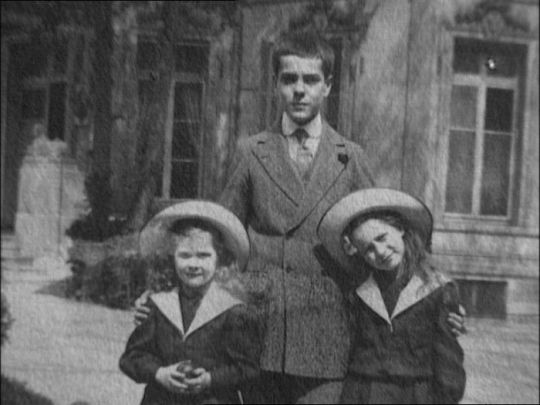
The person who had the most lasting impact on Natalie's childhood was her brother Vladimir, who had all the talents. So much so that throughout her life, she searched for imitations of Bodia - who over time became to her the very essence of masculine perfection in most of her friends.
“He read to us plays by Edmond Rostand, The Blue Bird by Maeterlinck, extracts from Rabindranath Tagore and naturally his own works,” remembers Princess Irène Paley . “He wrote small plays for us, drawing the costumes, brushing the sets, adjusting the lighting. He played works of his own composition for hours on the piano." As Jacques Ferrand recalls, in the portrait that he paints of himself, one might have believed at first glance that he was an affected and spoiled child whereas in reality he had great maturity, very unusual for his age.
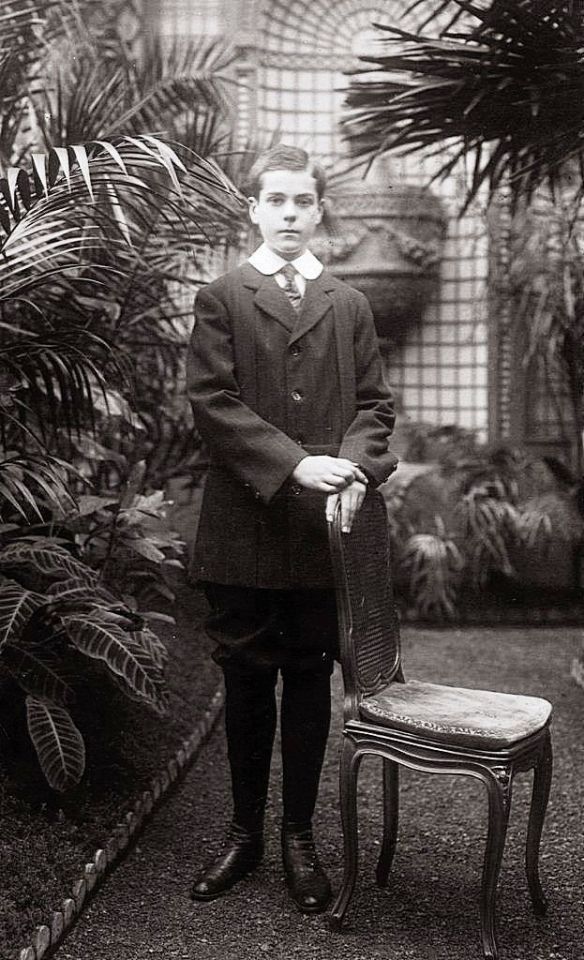
His parents, and particularly his mother, to whom he was very close, always encouraged his rare gifts. "From childhood, he wrote verses of which he had nothing to be ashamed of - some of his works can be compared to those of Pushkin", Prince Félix Youssoupoff assured, translating the general opinion with these words, "painted and played the piano like a virtuoso." An ideal big brother. If we add to so many intellectual qualities his Narcissus looks, then we have a precise idea of his personality. (...)
Vladimir was a source of joy for everyone. Grand Duke Paul himself, so often lost in thought, laughed a lot in her presence. He liked to leaf through the album of caricatures made by Bodia, who always caught everyone's faults, starting with his own.
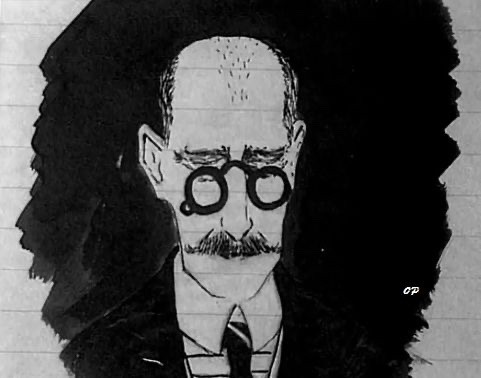
Concerning Irene and Natalie, we owe him the most revealing text, the most psychologically accurate, as to the links which united them: "This year, Iricha is doing her devotions for the first time. She came with us to church without Natacha who didn't know what to do at home. We took her for a walk but she still seemed bored." Since it was always Iricha who was 'the leader', Natacha had difficulty being without her older sister, and what's more, they were not used to living apart. When one of them was ill, the other wandered sadly, like a shadow around the house, but when they played together in the garden, they invariably fought but resumed their games after five minutes, as if nothing had happened. As the popular saying goes: “Together we feel cramped and apart we feel bored.”
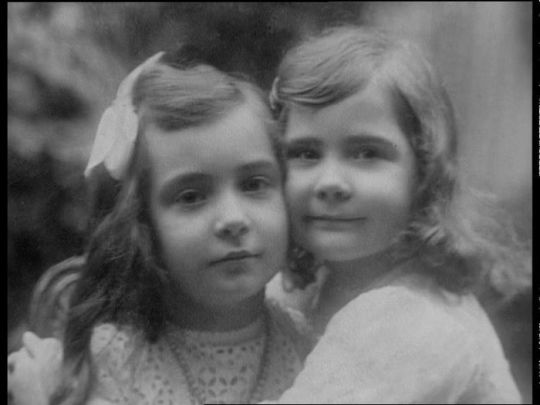
Until 1913, when Natalie was eight years old, Bodia shared his parents' exile then, with the authorization of Tsar Nicholas II, he returned to Russia in order to complete his education in the Corps des Pages; he was left with little choice... a career as an officer in the family tradition. From then on, his two sisters impatiently awaited his return to Boulogne, dressed in his dark blue uniform with golden frogs and peaked helmet with a white mane.
The direction given to Vladimir's studies is surprising, because nothing about his nature predisposed him to such a change of heart [from his artistic inspirations]. This choice had the stamp of Grand Duke Paul, who, unlike his wife, "didn't understand the qualities which gave his son all his value"; moreover, his somewhat bohemian tendencies surprised him and, perhaps, also worried him slightly. Time proved him right. Bodia, separated from his family, far from the adoration his mother and sisters bestowed on him, took full advantage of the contact with other boys his age and the merciless discipline of the Corps des Pages. He became more natural, more spontaneous, while never neglecting his different passions. His departure was the first heartbreak of Natalie's childhood.
Princess en Exile - Jean-Noel Liaut
#romanov#paul alexandrovich#imperial russia#imperial family#royalty#olga paley#natalie paley#irina paley#vladimir paley#royalty in exile#paris#belle époque
31 notes
·
View notes
Text
Grand Duchess Marie Alexandrovna on meeting the Hohenfelsens
(safe to say she was not impressed 🤣)
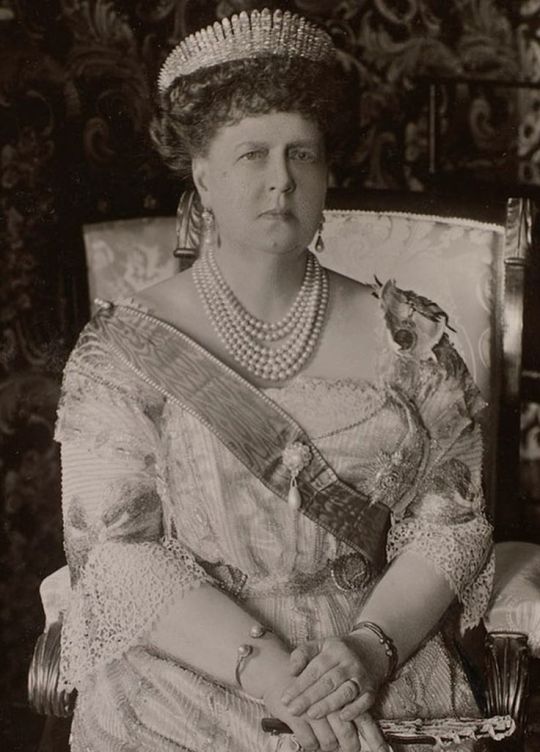
Paris, 16 June 1908
The young Swedish couple" has arrived in our hotel. Little Marie is a very sedate and calm little person, but she poured her heart out to Baby: she feels it terribly meeting here her step-mother and suffers greatly under it. As to poor little Dmitry, he is in perfect despair. He hates the whole thing and loathed the idea of seeing his new Geschwister [siblings]. He comes to me to talk about it.
Of course Uncle Paul and wife manquent de tact [are tactless] in every way: for instance, last Tuesday he arranged a big luncheon with quantities of his French acquaintances and asked us too. It was the first time poor Dmitry went to his house here and Uncle Paul presented him to all the guests as "mon fils aine" [my eldest son]. The boy simply se tordait de désespoir [curled up in despair], we observed it all and in the middle of this unknown company appeared these second children and all the affected French people went into loud ectasies about them [at this time, Vladimir was 11, Irina 4 and Natalie 2], whilst poor Dmitry was pale with concentrated rage and moral suffering.

Marie told Baby that she never would have come here, had she known, how it would be. And people are wonderfully taktlos. They all praise her to the skies when they talk to me, cette charmante Comtesse Hohenfelsen, "elle est adorable, cette femme". Vous trouvez [that charming Countess Hohenfelsen. She's adorable, don't you think?]. I answer, oh! Bien pour moi, c'est très pénible [for me it's all very painful] and I tell them a few truths. Then they at once turn the conversation, as French people hate when they are found at fault et ne désirent pas du tout en savoir d'avantage. [and don't want to be wrong in any way].
As to Uncle Paul, I cannot support at all him here; his whole attitude and tone I find detestable, I don't show it, à quoi bon and I am simply polite with his wife, like with any lady in society I don't care for. I simply writhe when I see in his house portraits of my mother, what a desecration! And he pointed them out to me! I thought one moment I would like to insult him before all his idiotic French guests.
"Dear Mama" - Diana Mandache
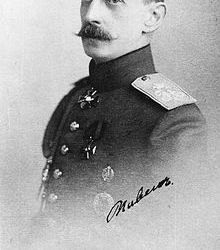
This is what I love about digging into original sources. When we read Grand Duchess Maria Pavlovna's memoires, the idea we get is that she always had a pleasent relationship with her stepmother, but here (at least according to Maria Alexandrovna, who clearly still held a deep resentment towards her brother and his second wife) it seems things were not so smooth.
It's also interesting (and sad) to notice how she doesn't really consider Grand Duke Paul's children from his second marriage worthy of any note and is even annoyed that the French fawn over them and that Grand Duke Paul introduces Dmitri as his "eldest son", which seems to imply she doesn't consider Vladimir to be his son at all.
It kind of shows what the rest of the family thought about Grand Duke Paul's second family: so irrelevant that it was as if they didn't exist.
#romanov#paul alexandrovich#imperial russia#imperial family#royalty#olga paley#grand duke#grand duchess maria alexandrovna#natalie paley#vladimir paley#irina paley#morganatic marriages#marie pavlovna jr.#dmitri pavlovich#beatrice of coburg
44 notes
·
View notes
Text
Vladimir Paley at the Corps de Pages - Part 2

His sister Maria [Pavlovna] recalled: "There was nothing military in his character, but the years spent away from an adoring family, the contact with boys of his own age, and the discipline of the school did him a lot of good. He became more natural, simpler in his way. Having formerly spoken Russian very badly, he quickly learned his mother tongue and knew it better than many of those who had lived in Russia since childhood." During these early years in Russia, Volodia started to develop closer ties to his half brother Dimitry, who in a certain way faced a similar situation. He was separated not only from his father but also from his beloved sister Maria, who was living in Sweden. They led very different lifestyles, something understandable if we remember in 1910 Vladimir was only thirteen and Dimitry was already an eighteen-year old glamorous officer. However, the brothers got along well and enjoyed spending time together.

Vladimir also increased contacts with other Romanov relatives, several of whom he had already met in France. Despite the official attitude toward morganatic marriages, most of the grand dukes and their children felt sympathy for their handsome and talented young cousin. Of course, there were some reluctant ones, like Grand Duke Serge's widow Ella whose hostility toward the Countess von Hohenfelsen and her children was well known. She once remarked coldly that Vladimir was "not of the family. "

Poetry was not alien to the Romanov dynasty. One of Paul's first cousins, the talented Grand Duke Konstantin Konstantinovich, was already a distinguished scholar and famous poet, who since the 1880's published his verses under the name K.R. and wrote lyrics for several compositions by Tchaikovsky. Vladimir von Hohenfelsen read avidly K.R.'s verses, and several of his own literary creations were deeply influenced by them. The grand duke, father of a big and happy family, lived in the beautiful palace of Pavlovsk near Saint Petersburg, and Vladimir spent many happy hours there which he remembered in one of his favorite poems. Prince Gabriel Konstantinovich (later Grand Duke), second son of K.R., who met Vladimir for the first time in 1914, recalled in his memoirs: "Bot'ka was handsome, gracious and talented in a high degree: he wrote remarkable verses in Russian as well as in French… He was loved in the regiment…" From the Corps-des-Pages, Vladimir was well acquainted since 1912 with two of K.R's sons, Konstantin Konstantinovich and Igor, who studied there and were later to share his final days. Another brother, Oleg, also showed an early gift for poetry.

In 1913, Russia celebrated with countless feasts and parades the 300-year reign of the Romanov dynasty. Paul and Olga visited Russia, taking time to prepare for their definitive return. The Corps-des-Pages students attended many of the functions, and Vladimir wrote home describing some of them. When the celebrations ended, he went back to school and kept on writing. When 1914 started, Vladimir had already become a very good looking young man who combined his handsome features with a noticeable charm. He enjoyed life at its best and became a popular character among the Saint Petersburg aristocratic youth. At a fancy dress ball given by Countess Kleinmichel in January that year, Olga Valerianovna was fascinated to hear the guests agree that her son was the handsomest figure at the occasion and to have him described as "the Prince Charming who is the dreamt of in fairy tales".
"A Poet Among the Romanovs" - Jorge F. S��enz
#romanov#paul alexandrovich#imperial russia#imperial family#royalty#olga paley#grand duke#elizabeth feodorovna#vladimir paley#grand duke konstantine konstantinovich#oleg konstantinovich#gabriel konstantinovich
16 notes
·
View notes